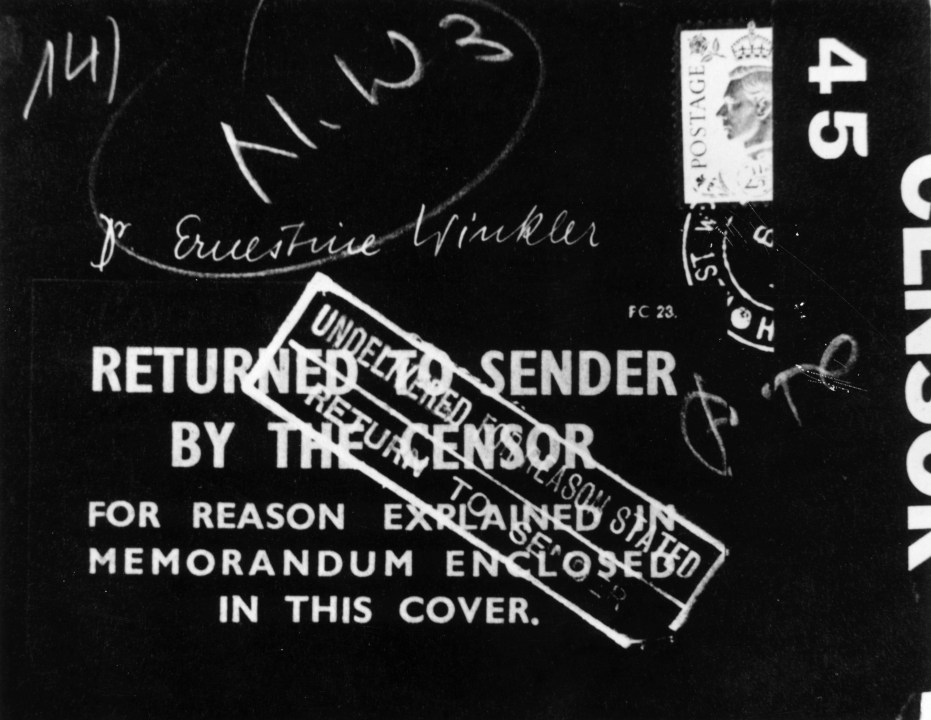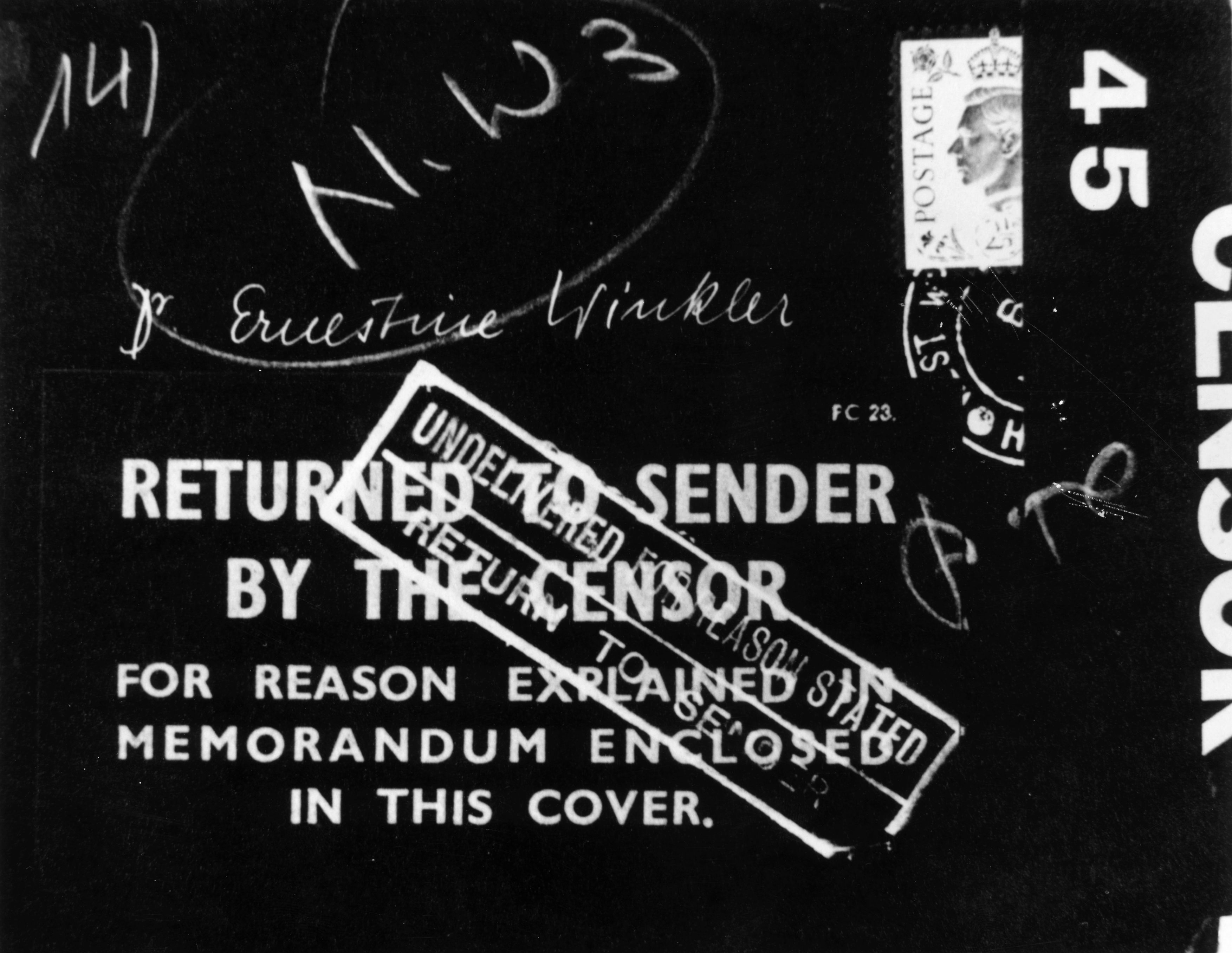Sometimes, you know, I come close to despair. These are the times when you think the Reverend I.M Jolly was right. About everything. I mean, you could read Benedict Brogan’s column in today’s Telegraph and think that with friends like these the free press – to say nothing of the freedoms of the ordinary citizen – have no need for enemies.
To begin with, the headline is not encouraging. Shining a light on the shadowy figures who shape our politics. It’s just a little too close to the sort of thing you might find in a BNP newsletter. But perhaps, you may think, as is so often the case the headline is a misleading teaser. If only that were the case. Mr Brogan is writing about the government’s Transparency of Lobbying, Non-Party Campaigning and Trade Union Administration Bill and the bad news is that he’s all in favour of it.
Because, as he writes, the bill’s real purpose is to:
[A]ddress a problem that drives Conservatives mad, namely the way the Left now commands the heights of civil society, and from there lobs turnips at David Cameron. […] Policy battles these days are more commonly fought through the proxies of think tanks, campaign groups, public bodies and charities deployed across the airwaves, from the Today programme to Newsnight. Labour, both under Tony Blair and since then, has been adept at getting its friends into places of influence – where, under the cover of independence, they shape every argument to a Left-of-centre view.
Ah. I see. The bill should really, therefore, be called The Suppression of Opinions The Present Government Deems Inconvenient. And why are they inconvenient? Because these opinions amount to opposition and opposition is invariably inconvenient. Even if it is loyal rather than shadowy.
As Brogan says the bill is a catch-all omnibus that like all such bills is a frightful mess. Moreover it was produced to, in Brogan’s words, “address the perceived problems with lobbying”. In a more sensible world you’d first ask whether there are any actual problems with lobbying rather than merely perceived but that of course is not the world in which we live. And, of course, by and large there are few problems with lobbying and those that may be thought to exist will not be addressed by measures designed to make lobbying more, not less, of a closed-shop. Indeed, lobbying – or petitioning – government (and parliament) is every citizen’s right and, indeed, every organisation’s right too. You could even argue it should be made easier, not more difficult, not least because corporate regulatory capture is the biggest problem. When lobbying is expensive only the powerful can lobby.
But never mind all that. Because, as Brogan continues:
[T]he measures proposed have not passed muster with those who want tighter controls on those who legitimately try to shape the work of government for the benefit of their clients or members. The same goes with the aspects of the Bill that were supposed to curtail the influence of the trade unions. As for its attempts to make it harder for campaign groups to deploy their forces on behalf of parties or candidates in an election, the outcry has been vociferous.
In other words, no-one, not even the people who, broadly-speaking, approve of the government’s intentions think this is a good or useful piece of legislation. Everyone liable to be affected by it thinks it a mess and an unworkable, disgraceful, mess at that. So perhaps it might be wise to think again?
But no! Because none of this matters when you can use the bill as a means of sticking it to your opponents. All in the name of transparency of course. (Transparency being one of those modern words with much to hide, of course.)
Ministers expected hostility from the Left, but have been taken aback by the ferocity of opposition from the Right. Conservative groups fear that the rubbery wording of the legislation could lead to their campaigning activities being curtailed. Assurances from ministers that the Government would never dream of using its new powers for such a purpose draw the sensible riposte that future Left-wing administrations might take a less benign view: beware the unintended consequences of laws.
Well, yes. Or, as this might be better phrased, Government cheerleaders are surprised that people who do not think of themselves as government cheerleaders worry that governments cannot be trusted not to abuse these things. They warn it is no use discriminating between good governments and bad governments. At root they are all alike and sooner or later out pops the cloven hoof.
Which they are. All alike, that is. Brogan acknowledges that the lawyer Helen Mountfield produced a “forensic demolition note” on behalf of the National Council of Voluntary Organisations (a shadowy nest of vipers if ever there was one) warning that in her opinion “there is a serious case for saying that the proposals in… the Bill as it presently stands violate the right to freedom of political expression.”
Rather than accept that this might demonstrate a certain weakness in the bill’s provision Brogan goes on to prove Mountfield right. You see:
The Bill’s supporters counter that the opposition to it illustrates the very problem that Tories want to address. Ms Mountfield, for example, is a rising star of Matrix, the public law chambers co-founded by Cherie Blair QC and viewed with suspicion on the Right.
Nice little bit of guilt by association there. Next:
Take, too, the Commons committee on political and constitutional reform, which produced a report last week that comprehensively demolished the Bill.
Another report that comprehensively demolishes the bill? You might almost think the bill has some problems. Not So Fast, My Friend! You see:
[The committee’s report] relied on evidence from Unlock Democracy, the National Union of Journalists and the National Council for Voluntary Organisations. Yet the first campaigns for proportional reform and “fair votes”, which puts it on the political Left; the NUJ is a discredited relic that thinks Labour isn’t socialist enough; and the NCVO, viewed from the Right, seems intent on stopping reductions in the public subsidies many of its members rely on. Or take the Electoral Commission, which has also pointed out the “regulatory uncertainty” the Bill might create: its chairman, Jenny Watson, is frequently cited in Tory circles for being a Labour appointee. Or consider even 38 Degrees, a grassroots campaign organisation that is bitingly critical of the Bill. It boasts on its website that it’s “absolutely not” connected to any political party, but when you look more closely, its campaigns oppose fracking, zero-hours contracts, and “Jeremy Hunt’s NHS privatisation plot”.
I’ve no time for the NUJ leadership myself but it’s possible for the NUJ to be right occasionally. It’s even possible for the Electoral Commission, that noted bastion of leftwing agitation, to be right too. As for campaigners for proportional representation? Well it’s “fair votes” today and “off to the gulag with you” tomorrow, ain’t it?
It’s at this point that the Conservative case, if not the methods, acquires some merit. Cast your gaze along the social and political waterfront and a pattern begins to emerge. The bully pulpits – the roles that come with a guaranteed audience and a permanent invitation from the BBC – are too often occupied by those whose history owes more to Britain’s post-war soft-Left, progressive, modernising consensus than the market-led, laissez-faire, conservative traditions that marked the Thatcher revolution.
Which, presumably, is why we hear so little from the Taxpayers Alliance. Like you I’ve also been struck by how Nigel Farage struggles to get onto the BBC airwaves. (Of course we hear plenty of left-wing views too. That’s a good thing!)
But this is not, actually, as the reaction to the bill demonstrates a matter of political point-scoring. The Adam Smith Institute and Big Brother Watch and the Institute for Economic Affairs and ConservativeHome hate this bill just as much as Oxfam or any other “left-wing” think tank, charity or campaign group.
And they hate it with good reason because for the 12 months preceding any election the bill makes it massively more difficult for these organisations to their work. This is not some shadowy conspiracy designed to manipulate the state. It is the stuff of public life in a mature democracy. Doubtless this is, from time to time, inconvenient to the government of the day but what of that? The public square is – and should be – a noisy, crowded, disputatious place. A better government would have the confidence to make its arguments and trust they might prevail. It would not seek to silence third parties or do its best to regulate them out of existence.
According to the Telegraph’s Deputy Editor, however:
Tackling political bias requires first a clear diagnosis. Rather than surreptitious briefings, it is way past time the Conservatives produced an audit of civil society to back up their case. Evidence should come before action, and getting a measure of the problem – past and present – would help win an argument that is far better conducted in public debate than through intrusive and cumbersome legislation against charities. Mr Lansley is right that we should know who is trying to influence our politics. And he is right that transparency is essential.
An “audit of civil society”? Who could possibly find that sort of thing troublesome? And who, for that matter, thinks there is even a real problem here? Unless by problem you really do mean opposition to the government of the day’s policies? Lansley’s bill is a disgrace that should appall all liberty-minded citizens. Monitoring political bias is just a polite term for monitoring political opinion.
Campaign groups are by definition biased. Think Tanks would like to nudge political parties towards policies recommended by think tanks. We know when IPPR or Policy Exchange is “trying to influence our politics” because newspapers publish sentences like “according to a new report published today by Policy Exchange…”
There is no crisis here, there is no great problem that requires more regulation (the opposite is more probably true). There are few shadowy types undermining British democracy and those that might exist won’t be affected by this daft and pernicious bill anyway. But a little list of public enemies of the sort Brogan appears to favour is more troubling than even anything this troublesome bill contains. Jesus wept.








Comments